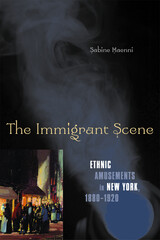Cloth: 978-0-674-32001-7
An analytical study of the French apanages from their creation to the end of the Capetian period, this pioneering book offers an explanation of why the French kings began the practice of granting fiefs to their younger sons, and why they introduced the curious inheritance restrictions which limited succession in an apanage to direct heirs of the original holder. The author also examines the connection of the apanages with the royal government in terms of sovereignty, jurisdiction, administration, military obligations, and financial affairs, showing how difficult it was to draw distinctions between the two spheres of government.
Since the original apanages were granted from lands only recently conquered from the English, they had the important practical effect of introducing the notion of French royal authority into areas that had not known it for centuries. People living in these lands became used to the fact that "the king" was the king of France, not of England. A clear understanding of the relationship of the apanages to the monarchy, the author maintains, is at the same time a large step toward an understanding of how the monarchy gained control of France and,ultimately, made a nation out of her fragmented provinces.
See other books on: Europe | France | History | Wood, Charles T.
See other titles from Harvard University Press












